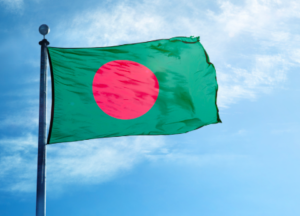
Hello Everyone!
Have you ever discovered you were an ethnicity you had no idea about?
Recently, my grandfather passed away (quite suddenly) and he happened to be at an unexpected place at the time, MINNESOTA! He’s lived most of his adult years in Dallas, Texas although he is from Bangladesh. Growing up, I had NO IDEA I was even Bangladesh. My father always explained to me that I was Pakistani, and well of course I knew I was Mexican as well (hola!) because my mother never forgot to teach me about her roots. I recently discovered I was Bangladesh about 2 years ago, yes yes, well into my adult years already, I’m nearly 30!
Alice (my youngest daughter) and I packed our bags and caught a flight to Minnesota, racing to the hospital to say our final goodbyes. By the time we arrived, physicians gathered everyone in a room and discussed the options we had in order to provide him with a peaceful death. Some family members fought, stating that we needed to begin dialysis and that maybe this would be a miracle and he would come back. I opted for allowing him to be on medications and letting him die peacefully without causing any further damage to his body. My grandfather had some neurological brain damage after being with low oxygen for several hours, a weak heart that was no longer perfusing to the rest of his organs, and fluid in his lungs with a recent discovery of lung cancer. A few hours later, he passed.
I learned that in the Islamic tradition, one must bury their loved ones 24 hours after their death! I was clueless to anything relevant to this. Maybe I should start doing further research into the culture.. Unfortunately, this put us in a predicament where we had to bury my grandfathers body in Minnesota rather than transporting it back to Texas.
So my question to you is, what do you do when you are of a different faith than the relative you are burying? — I found myself clashing with mostly everything, but out of respect I followed through with what my family wanted.
I discovered that my grandfather believed in a prophet coming AFTER Mohammed the prophet, therefore he was considered an Amity ( I had to do some research obviously). My father was fighting with the mosque because they were stating he was unable to be buried where the other muslims were.
The following day I had to wash my grandfather’s body, this is known as “Ghusl.” Being that I ALSO do not speak URDU this was a difficult task. I began to wash his body 3 times, beginning with his face. 3 Somalian men volunteered to help me. We rid his body of any extra fluid by sitting him up and pressing down on his abdomen ( I apologize if I am making this too graphic), and I wrapped him in white cloth and tied knots, assuring that the cloth would remain intact while being transported to the burial site. His body was laid to rest in a big storage container with zipties securing it.
LATER ON…..
I did some research and realized that only MEN are supposed to perform this ritual! I’m glad that no one enforced that rule because I feel like cleaning his body and praying for him in my own form was a way of closure for me that allowed me to not fall apart when it came time to bury him.
So how would you have death with the entire situation?
Do you believe that the tradition of allowing only men to perform this ritual should be applied regardless of the circumstances?
Also, how have you coped with the death of a loved one?
Do you believe that if one does not cry during such a stressful time that they truly did not care for the individual? –My personal take on that is that we all grieve differently and the same things do not apply to everyone.
Lastly, to bring things to a close, this led me to wanting to learn more about my culture. To be able to give that information to my daughters if they are ever curious about our roots. Hey, maybe even visit Pakistan and Bangladesh someday. I heard it was beautiful.
What are your thoughts? Weigh in and let me know! I would love to hear from you guys!

